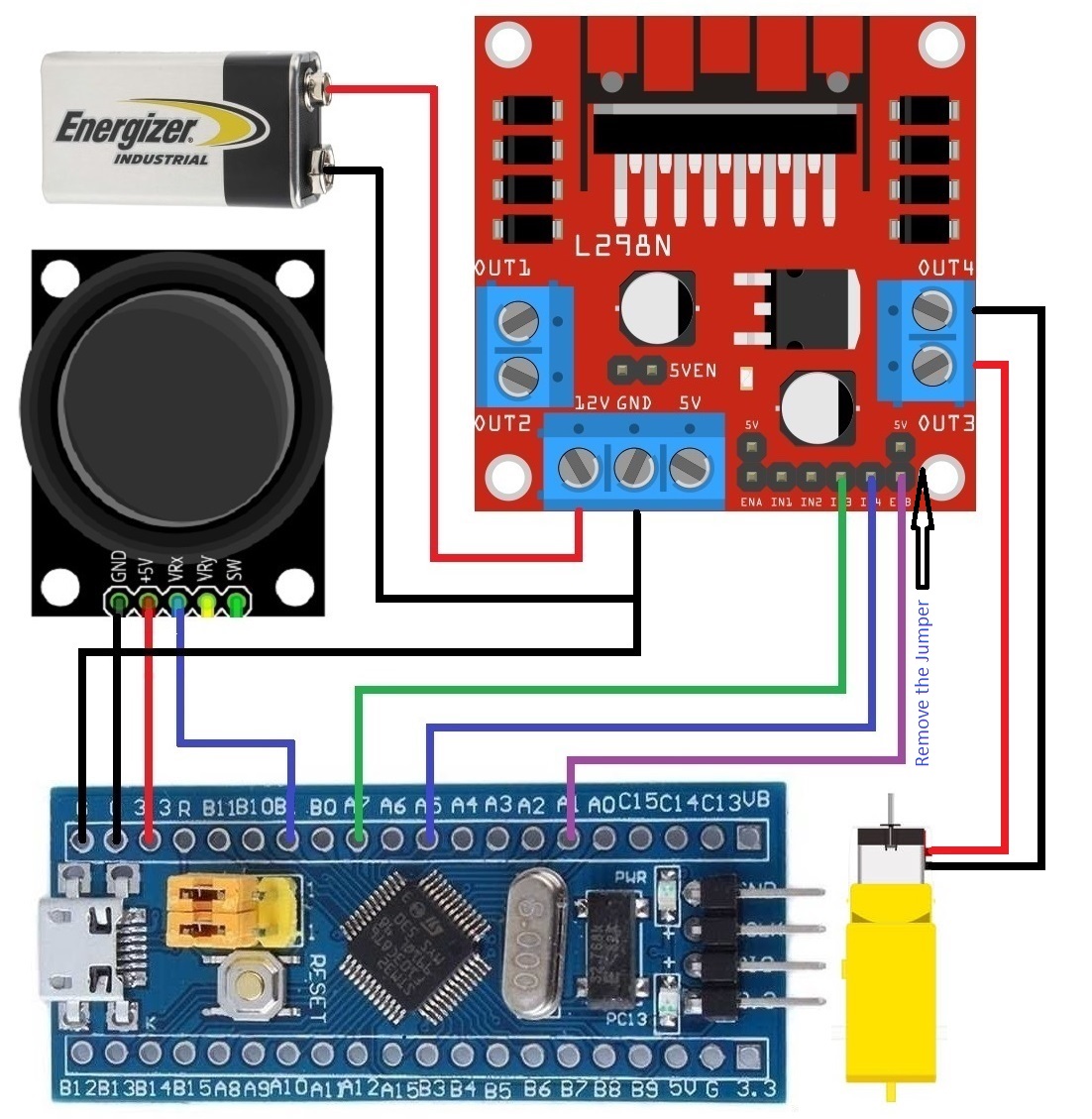Docs
Micro-controllers, wireless transmission and database

L298N Motor with Blue Pill using STM32CubeIDE
Prerequisites
This project assumes you have already installed STM32CubeIDE. You need to have previously done a basic blink sketch with blue-pill using STM32CubeIDE. I have made a complete video from installing STM32CubeIDE to LED blink program. You can watch it by clicking this link. https://www.youtube.com/watch?v=kXg467nVd_A
Wiring Diagram

STM32CubeIDE Settings
Click Timer → Click TIM2 →
Clock Source set to Internal Clock
Channel2 set to PWM Generation CH2
Configuration → Parameter Settings →
Prescaler set to 127
Counter Period 625
ADC1 - IN9 (tick)
Parameter Settings --> ADC Settings --> Continuous Conversion Mode (Enabled)
Set PA5 and PA7 to GPIO_Output
Additional code on top of STM32CubeIDE generated code
/* USER CODE BEGIN 2 */ HAL_ADC_Start(&hadc1); //PB1 HAL_TIM_PWM_Start(&htim2, TIM_CHANNEL_2); //PA1 TIM2 CH2 uint16_t readValue; int speed; HAL_GPIO_WritePin(GPIOA, GPIO_PIN_7, 0); HAL_GPIO_WritePin(GPIOA, GPIO_PIN_5, 0); /* USER CODE END 2 */ /* Infinite loop */ /* USER CODE BEGIN WHILE */ while (1) { HAL_ADC_PollForConversion(&hadc1,1000); readValue = HAL_ADC_GetValue(&hadc1); if (readValue < 1790) { HAL_GPIO_WritePin(GPIOA, GPIO_PIN_7, 0); HAL_GPIO_WritePin(GPIOA, GPIO_PIN_5, 1); speed = (readValue - 1790) * (-1) / 3; } else if (readValue > 2220) { HAL_GPIO_WritePin(GPIOA, GPIO_PIN_5, 0); HAL_GPIO_WritePin(GPIOA, GPIO_PIN_7, 1); speed = (readValue - 2220) / 3; } else { speed = 0; } __HAL_TIM_SET_COMPARE(&htim2,TIM_CHANNEL_2, speed); HAL_Delay(50); /* USER CODE END WHILE */ /* USER CODE BEGIN 3 */